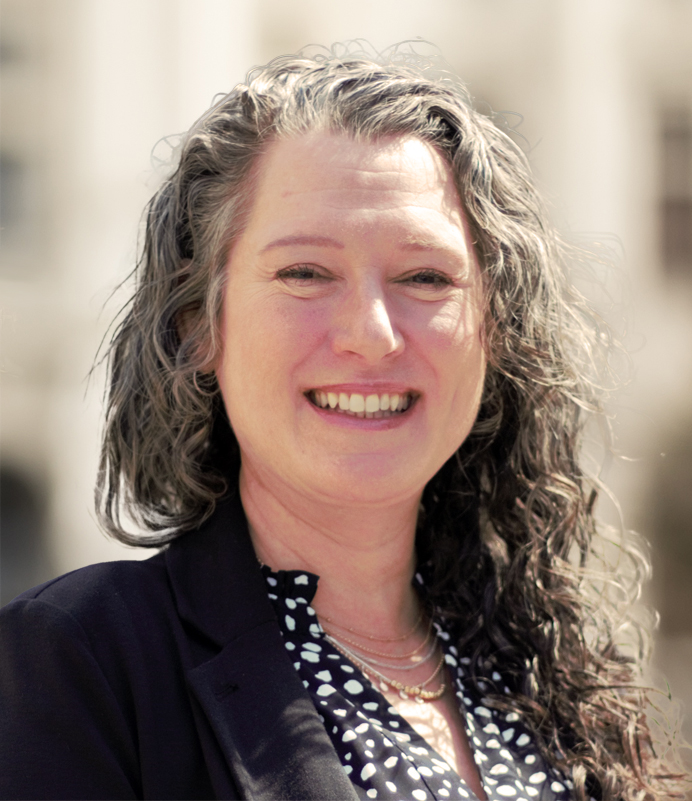Kris Hansen and her son Lucien are square pegs in a world full of round holes. If not for a cyber charter school, this West Chester family might not have found the right fit.
Lucien is intellectually and physically disabled. Bound by a wheelchair, cerebral palsy, and autism, he requires a higher level of care than most students. Since he was three years old, Lucien has needed extensive special education services.
But finding those services has always been a challenge. Lucien has attended school in four different districts—all presented unique obstacles to navigate. Sadly, Kris found that most districts took at least two years to develop an Individualized Education Program (IEP) and properly integrate her son.
Like many other households, the COVID-19 pandemic was a turning point for the Hansens. Lucien thrived with the transition to remote education.
However, when schools reverted to in-person learning, Lucien knew it wasn’t the right fit for him.
“He developed a significant fear of leaving the house, which you can’t negotiate with somebody at his intellectual level,” says Kris. “We had to be away from the group in order for Lucian to function and be himself.”
Kris began her exhaustive search for alternatives for Lucien. After scouring Google and diving deeply into Facebook groups, Kris discovered Achievement House Cyber School, an Exton-based cyber charter that serves more than 1,100 students in grades 7th through 12th.
When Kris approached Achievement House, she was surprised at the warm reception and the school’s thorough, thoughtful support system. The special needs team worked closely with her and Lucien to develop a detailed IEP. To ensure Lucien had everything he needed to succeed, the Achievement House staff even made several house visits—something not many would expect from a virtual school.
Achievement House also provides robust life skills training to help students thrive in the real world. Such programming gives high-need students, in Kris’s words, “the keys to the kingdom to anything they want.”
The Hansens aren’t alone in finding refuge in the cyber charter community. Students requiring IEPs are 27 times more likely to enroll in cyber charters.
Despite their value, cyber charters are the subject of political debate. Gov. Josh Shapiro and Pennsylvania Democrats proposed drastically cutting about $530 million from the 13 cyber charters serving 57,000 Pennsylvania students in the 2024–25 budget.
Lawmakers managed to cut funding, though not as dramatically as originally planned. Pennsylvania cyber charters will receive $34.5 million less in special education support in the new budget. Cuts like these directly impact the ability of cyber charters to adequately serve special education students, like Lucien.
When asked about any further cuts, Kris succinctly answers: “Don’t!”
She elaborates by sharing her personal experiences. Kris grew up in the 1970s—well before cyber charters existed. Then, she encountered countless peers who, without alternatives, failed out of school, and that was the end of their academic path.
“There wouldn’t have been another option,” Kris says. “And we’re serving those people today with cyber school, and I think it’s really important for that group of people not to be marginalized. What happens to all those people if there isn’t a place for them?”
Kris also sees cyber charters as a relief valve for overburdened public schools that cannot accommodate students like Lucien.
“Why would you put more pressure on the school district to come up with 2,000 different ways of managing each individual student instead of letting the charter schools do what they were created for?” she asks.
Thankfully, Lucien graduated in June and has begun transitioning to life after school. Kris recognizes how momentous graduation is for not just her son but all cyber charter students.
“This is a big deal for these kids,” she says. “They clawed their way through to get their diploma.”
Pennsylvania lawmakers must hear these students’ stories. Without schools like Achievement House, nontraditional students like Lucien would struggle in traditional brick-and-mortar schools.
“We were lucky to find a school,” says Kris. “If this school wasn’t available post-pandemic, I don’t know what we would have done.”
To Kris and many others, cyber charters are essential to public education.
“Let’s work to our strengths,” she says. “Cyber school is a strength.”
Please follow DVJournal on social media: X@DVJournal or Facebook.com/DelawareValleyJournal


